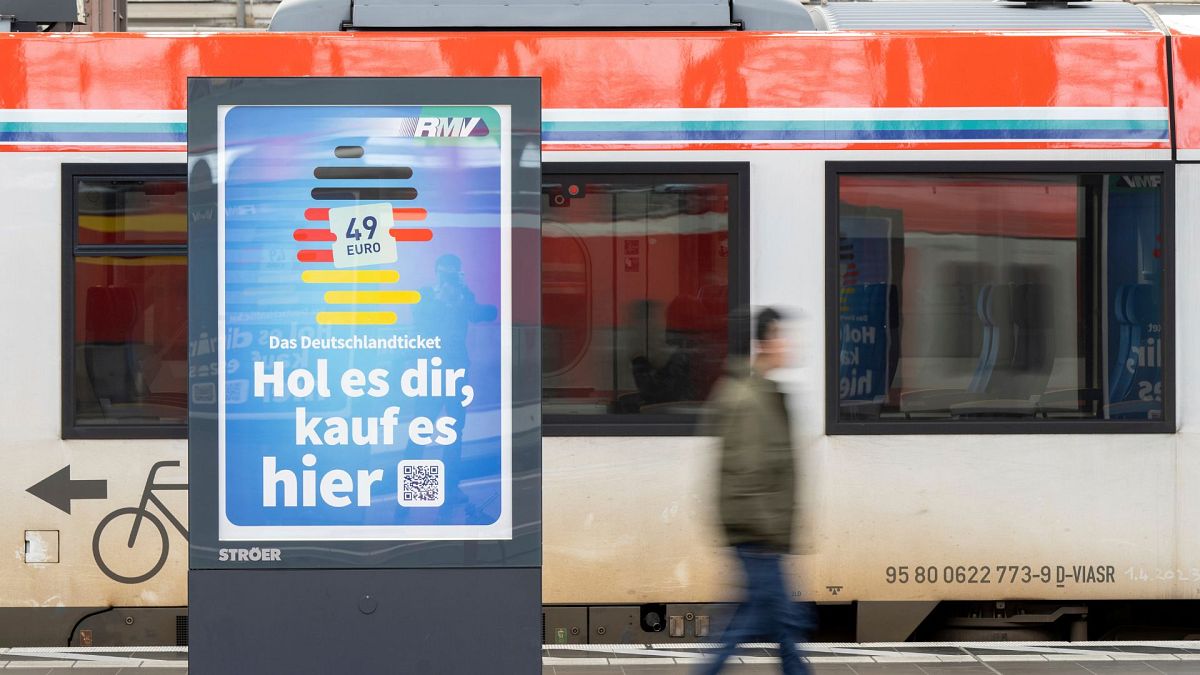Since launching in April last year, Germany’s €49 public transport ticket has proved immensely popular.
More than three million Germans purchased the ‘Deutschlandticket’ in the first month after its release.
The pass - which offers unlimited travel on all local and regional public transport - was hailed by authorities as the “biggest public transport reform in German history”.
The government has now confirmed that the ticket will continue to be offered in 2024 and that the price will remain the same until the end of the year.
Last year, transport bosses warned that the low price was unsustainable.
Local and regional companies are being squeezed by high inflation, Munich’s MVG transport authority boss Ingo Wortmann said, but ticket revenue remains low.
"So far, politics has absorbed the difference to the previous income for the transport company," he told Abendzeitung, a daily newspaper in Germany.
A price hike was expected this month, but transport ministers decided to reassign unspent funds from 2023 to finance the scheme this year.
What is the Deutschlandticket?
Also known as the ‘D-ticket,’ the low-cost pass currently costs €49 per month, or roughly €1.60 per day. It is valid on all city buses, subways and trams in municipalities across Germany, as well as short and medium-distance transport including trains. It can’t be used for long-distance trains operated by DB Fernverkehr AG (including RE) or other providers such as FlixTrain (IC, EC, ICE).
The monthly pass is the successor scheme to the €9-per-month ticket trialled in the summer of 2022.
Introduced to combat rising inflation after Russia invaded Ukraine, the ultra-cheap pass was extremely popular. More than 52 million tickets were sold for travel in June, July, and August.
German transport companies association VDV claims that it saved around 1.8 million tonnes of carbon emissions during these three months.
The €9 price-tag was unsustainable in the longer term - but the €49 ticket is also very popular, crashing Deutsche Bahn’s website when it was first launched.
Of the 3 million people who purchased it during the first month after its launch, at least 750,000 had never taken out a public transport subscription before.
Last year, suggestions about an increase in price were met with fierce political opposition.
Nikolaus Gradl, the traffic expert for City of Munich Council, described the idea of a hike as “absurd.”
“For us, a price increase is not an option,” he told Abendzeitung.
For now, the federal and state governments will continue to fund the shortfall, easing the impact that inflation and material costs have on the public transport companies.
What other changes to the Deutschlandticket are authorities considering?
The federal traffic light coalition is currently working on a “family-friendly rule” which would allow ticket-holders to bring one other adult and up to three children between the ages of six and 14 with them at certain times.
If agreed to by transport companies, this rule would apply on weekends, holidays, and after 8 pm on weekdays.


